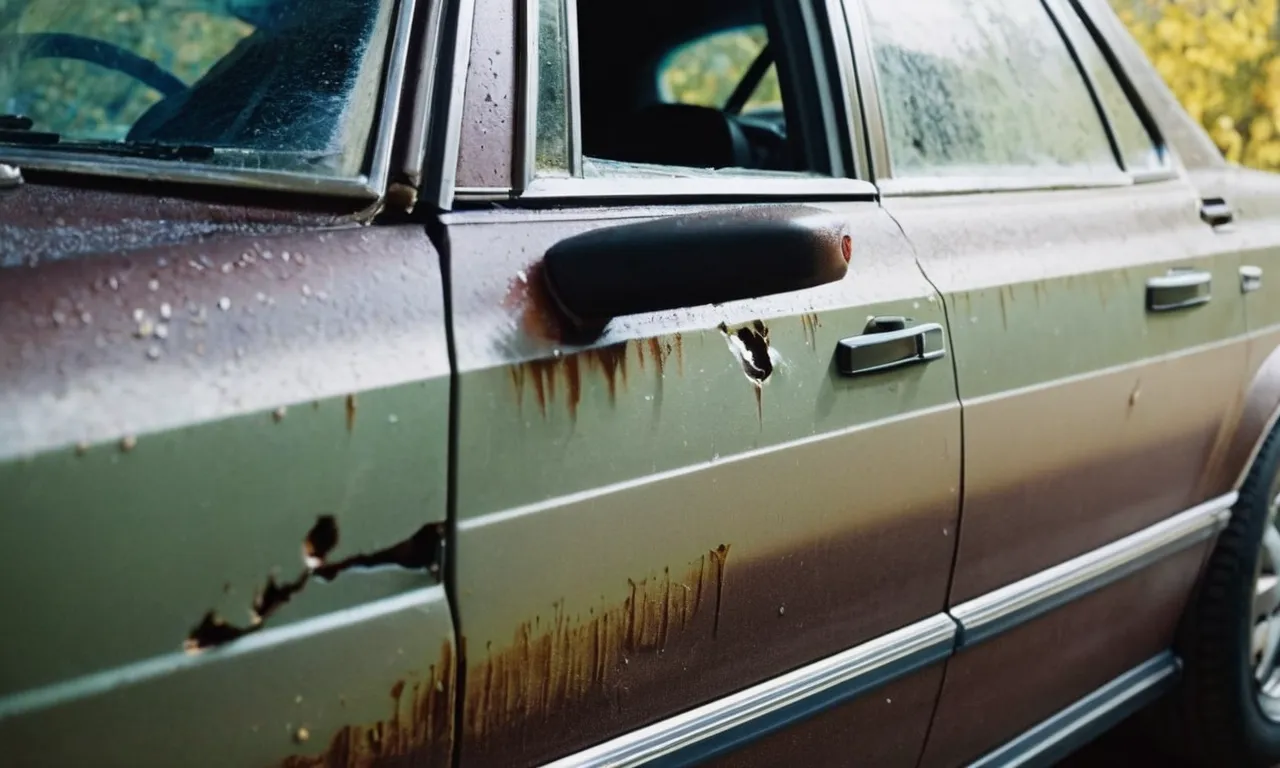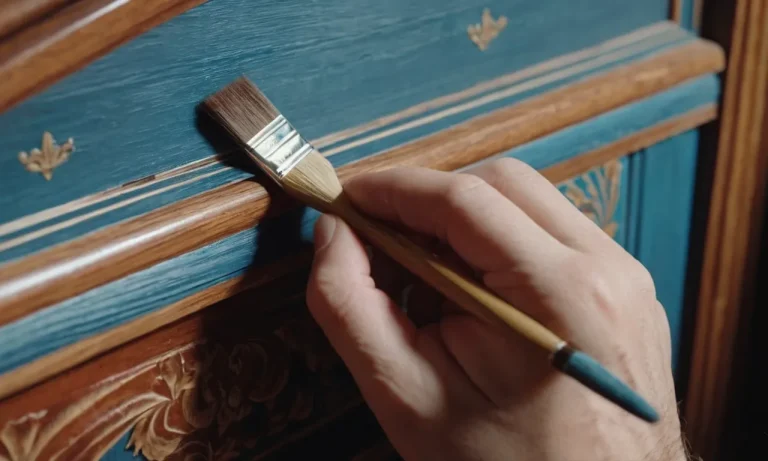Is Door Dinging Considered A Hit And Run?
Finding an unexpected ding or scratch on your car after someone else opened their door can be infuriating. You may wonder if it counts as a hit and run and if you can hold the other driver responsible. This comprehensive guide will examine door dinging incidents from a legal perspective.
If you’re short on time, here’s a quick answer to your question: Door dinging is generally not considered a hit and run. While irritating, minor door dings and scratches that do not impair operation of the vehicle usually do not meet the criteria to be considered a hit and run crime unless the driver flees the scene knowingly.
What Qualifies as a Hit and Run
When it comes to traffic accidents, leaving the scene without taking appropriate action can have serious legal consequences. This is known as a hit and run incident. But what exactly qualifies as a hit and run? Let’s explore the key factors that determine whether an incident falls under this category.
Leaving the scene of an accident
The most basic requirement for a hit and run is leaving the scene of an accident without stopping and providing necessary information to the parties involved. This includes exchanging contact and insurance details with other drivers, as well as offering assistance to anyone who may be injured.
In some jurisdictions, simply leaving the scene of an accident, even if there is no apparent damage or injury, can be considered a hit and run. It is always best to remain at the scene until authorities arrive or until all necessary information has been exchanged.
Causing injury or property damage
In addition to leaving the scene, causing injury or property damage is a key factor in determining whether an incident is considered a hit and run. If a driver damages another person’s vehicle or causes injury to another person and then leaves the scene without taking appropriate action, it can be classified as a hit and run.
It is important to note that the severity of the damage or injury does not necessarily determine whether an incident is a hit and run. Even minor scratches or bruises can fall under this category if the responsible party fails to fulfill their legal obligations.
Knowledge requirement
One important aspect that must be considered in hit and run cases is the knowledge requirement. In some jurisdictions, the prosecution must prove that the driver had knowledge of the accident and intentionally chose to leave the scene without taking appropriate action.
However, in many cases, ignorance or lack of awareness of the accident does not excuse a driver from their legal responsibilities. It is the driver’s duty to be aware of their surroundings and the consequences of their actions on the road.
When Door Dinging Becomes a Crime
Door dinging, the act of someone accidentally hitting another person’s car door with their own, is a common occurrence in parking lots. Most of the time, it is an innocent mistake that can be resolved with a simple apology and an exchange of insurance information.
However, in some cases, door dinging can escalate into a criminal offense, particularly when certain criteria are met.
Fleeing the scene
If a person dings someone’s car door and then leaves the scene without taking any responsibility, it can be considered a hit and run. Just like any other hit and run incident, fleeing the scene of a door ding without providing contact information or reporting the incident to the authorities is illegal.
In such cases, the person who caused the ding can face legal consequences, including fines and even imprisonment, depending on the severity of the situation.
Significant damage caused
In some instances, a door ding can result in significant damage to the affected vehicle. This may include scratches, dents, or even paint damage that requires professional repair. When the damage caused by a door ding goes beyond minor cosmetic issues and becomes more substantial, the person responsible for the ding may be held accountable for the cost of repairs.
This can lead to civil lawsuits and potential financial liability for the responsible party.
Injuries sustained
Although rare, door dings can also result in injuries to individuals. For example, if a person is exiting their vehicle when another car door forcefully hits them, it can cause harm, such as broken bones or concussions.
In such cases, the person responsible for the door ding may face not only criminal charges but also potential personal injury claims. These claims can result in significant financial compensation awarded to the injured party.
It is important to note that the severity of the consequences for door dinging can vary depending on local laws and the specific circumstances of each case. To avoid any legal trouble, it is always best to take responsibility for door dings, exchange information with the affected party, and report the incident to the appropriate authorities.
Reporting Door Dinging Incidents
Dealing with a door ding can be frustrating, especially when you are not at fault. However, it is important to know the proper steps to take when reporting such incidents. This article will outline the three main avenues for reporting door dinging incidents: contacting the driver, filing a claim with insurance, and calling the police.
Contacting the driver
If you witness someone door ding your vehicle, it may be worth trying to contact the driver directly. This can be done by leaving a note with your contact information on their windshield. While this approach may not always yield results, it gives the driver an opportunity to take responsibility for their actions and potentially resolve the issue without involving insurance or law enforcement.
Filing a claim with insurance
If you are unable to contact the driver or they refuse to take responsibility, filing a claim with your insurance company is the next step. Most insurance policies cover damages caused by hit and run incidents, which include door dings.
Before filing a claim, it is important to review your policy and understand the deductible and coverage limits. It may also be helpful to take pictures of the damage as evidence.
Pro tip: Some insurance companies offer special coverage options for door dings, such as a zero deductible policy specifically for minor damages. Check with your insurance provider to see if this is an option for you.
Calling the police
In some cases, particularly if the damage is significant or if the driver refuses to provide their information, it may be necessary to involve law enforcement. Call the non-emergency police line and provide them with the details of the incident, including any available information about the other vehicle or driver.
The police may be able to assist in locating the responsible party or provide a police report which can be helpful when filing an insurance claim.
Remember: Each jurisdiction may have different guidelines for what constitutes a hit and run, so it is important to familiarize yourself with the local laws.
While door dinging incidents can be frustrating, knowing how to report them properly can help you navigate the process more effectively. Whether it’s by contacting the driver, filing a claim with insurance, or involving the police, taking action is crucial in holding responsible parties accountable for their actions.
Preventing Door Dinging
Door dings can be frustrating and annoying, but the good news is that there are several steps you can take to prevent them. By being proactive and taking precautions, you can greatly reduce the chances of your car being dinged by another vehicle’s door.
Parking away from other cars
One of the best ways to prevent door dings is to park your car away from other vehicles whenever possible. By choosing a parking spot that is away from crowded areas, you can significantly reduce the risk of your car being damaged.
Opt for a spot at the end of a row or in an empty section of the parking lot. This may require a bit more walking, but it’s worth it to keep your car safe from potential door dings.
Using protection devices
Another effective method to prevent door dings is to use protection devices. There are various products available in the market that can help safeguard your car’s doors from scratches and dents. One popular option is magnetic door guards, which attach to the side of your car and provide a protective barrier.
These guards are easy to install and remove, making them convenient for everyday use. Additionally, foam or rubber door edge guards can also be used to absorb impact and prevent damage.
Educating others on damage
While you may take all the necessary precautions to prevent door dings, it’s important to educate others about the potential damage they can cause. Politely informing people about the importance of being mindful when opening car doors can go a long way in preventing accidents.
Consider sharing your personal experiences or showing them statistics on the cost of door repairs. By raising awareness, you can help create a culture of respect and consideration in parking lots.
Remember, prevention is key when it comes to door dings. By parking away from other cars, using protection devices, and educating others on the potential damage, you can significantly reduce the risk of door dings and keep your car looking great.
Conclusion
While door dinging is often accidental, it helps to understand when it crosses into criminal territory. Being aware of laws around hit and runs and options for reporting dings can aid frustrated drivers.
With some defensive parking and education, drivers can also try to prevent these annoying dents and scratches altogether.







